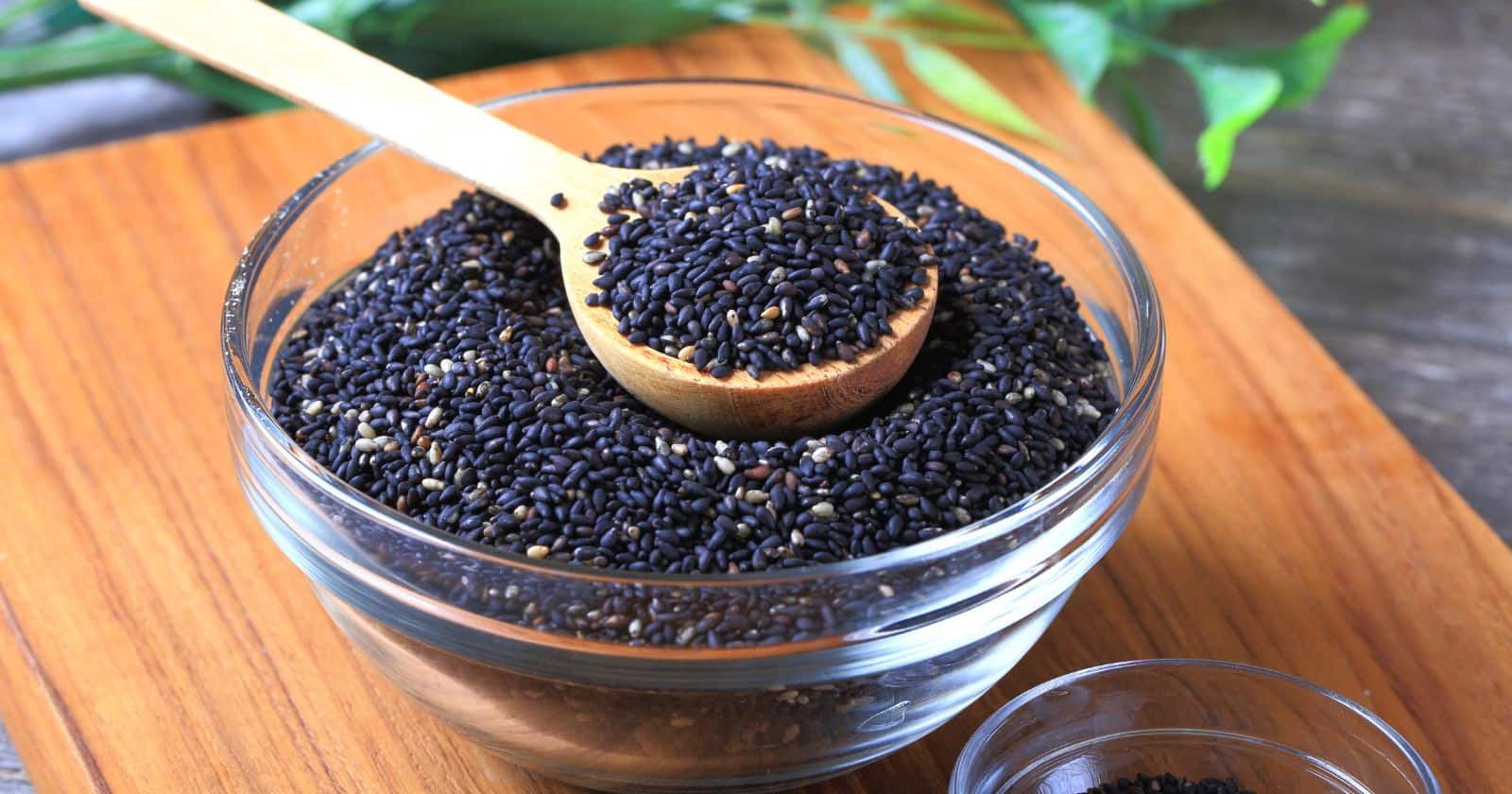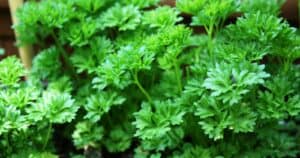Are you looking for a way to improve your overall health and well-being? Look no further than sesame seeds!
These tiny but mighty seeds have been used for thousands of years as condiments and oil and are prized for their health benefits.
If you’re looking to boost your immune system, lower inflammation, and improve heart health, sesame seeds might be just what you need.
Sesame seeds are packed with antioxidants, fiber, and healthy fats, which make them a great addition to your diet. They can help lower cholesterol levels, regulate blood sugar, and improve bone health. They’re incredibly versatile and can be added to various dishes, from baked goods to salads.
Whether you want to improve your overall health or add a new, nutritious ingredient to your meals, sesame seeds are a great choice.
So, let’s get started and discover the power of sesame seeds!
Sesame Seeds: A Brief History And Introduction
Sesame seeds are one of the oldest oilseed crops known, domesticated over 3,000 years ago. Ancient Egyptians used them as grain flour, and the Babylonians made oil from them.
Sesame has many species, most native to sub-Saharan Africa. It’s been cultivated for over 4,000 years and is a source of protein and healthy fats.
Sesame seeds have played an important role in many cultures throughout history. Here are a few interesting facts:
- In India, sesame seeds are used in religious ceremonies and are thought to represent immortality.
- In Japan, sesame seeds are used as a garnish or seasoning and are commonly found on sushi rolls.
- In Taiwan, sesame paste is used as a base for many sauces and dressings.
- Tahini, a paste made from ground sesame seeds, is a common ingredient in Middle Eastern cuisine used to make dishes like hummus and baba ghanoush.
Sesame seeds are also valued for their health benefits. They are a good source of protein and healthy fats and are rich in vitamin E and minerals like calcium and iron.
They may also have anti-inflammatory and antioxidant properties, which may help reduce the risk of chronic diseases like heart disease and cancer.
In recent years, sesame allergies have become more common. Even small amounts of sesame can cause a severe reaction to those with a sesame allergy.
As a result, many countries have called for sesame to be included in food labeling laws.
Health Benefits Of Sesame Seeds
Sesame seeds are unique tiny seeds packed with many health benefits. Here are some of the health benefits of sesame seeds:
- Good source of healthy fats: Sesame seeds are a good source of healthy fats, such as polyunsaturated and monounsaturated fats, that help reduce harmful cholesterol levels in the body.
- Help in blood sugar control: Sesame seeds contain lignans, which have been shown to reduce blood sugar levels, making them beneficial for people with diabetes.
- Promote strong bones: Sesame seeds are an excellent source of calcium and manganese, two essential minerals that help build strong and healthy bones.
- Reduce inflammation: Sesame seeds are a good source of antioxidants and fiber, which help reduce inflammation in the body.
- Aid in digestion: Sesame seeds benefit digestion due to their high fiber content. They help promote regular bowel movements and prevent constipation.
- Enhance heart health: Sesame seeds are rich in antioxidants that help protect the heart from damage and reduce the risk of heart diseases.
- Help in weight loss: Sesame seeds are low in calories and rich in fiber, which makes them a perfect ingredient for weight loss.
Adding sesame seeds to your diet can provide numerous health benefits and contribute to a healthy lifestyle.
In addition to these benefits, sesame seeds are a good source of minerals like copper, iron, phosphorus, zinc, and selenium.
They are versatile and can be added to various recipes, such as salads, smoothies, and snacks.
How Sesame Seeds Can Lower Cholesterol Levels
Sesame seeds contain plant compounds that can lower cholesterol levels. Research has shown that regular sesame seed consumption can effectively reduce high cholesterol and triglyceride levels, risk factors for heart disease.
Phytosterols enhance the immune system, decrease cancer risks, and reduce cholesterol absorption in the gut. Sesamin, a plant lignan found in sesame seeds, prevents cholesterol production and blocks its absorption.
Besides lowering cholesterol, sesame seeds provide additional health benefits. They contain healthy fats, fiber, and antioxidants that can improve heart health, blood sugar, and overall well-being.
Sesame seeds are also a great source of vitamins and minerals, including calcium, iron, zinc, and magnesium.
To reap the benefits, it’s easy to incorporate sesame seeds into your diet. You can sprinkle them on salads, oats, or rice dishes or use them as a seasoning in stir-fries and soups.
Sesame seed butter, or tahini, is a tasty and nutritious alternative to traditional nut butter. However you choose to enjoy them, sesame seeds are a small but mighty addition to any diet.
Incorporating Sesame Seeds Into Your Diet: Easy And Delicious Ways
Incorporating sesame seeds into your diet can be easy and delicious! Sprinkle them on veggie dishes and add them to smoothies or yogurt bowls.
Use sesame seeds in baking or make the tahini sauce perfect for a dip or salad dressing. You can add sesame seeds to savory dishes like stir-fry or roasted veggies.
Sesame seeds are a great source of nutrients. They are high in calcium, iron, magnesium, and zinc, making them an excellent addition to your diet.
Additionally, sesame seeds contain lignans, which have been shown to have antioxidant and anti-inflammatory properties.
Incorporating sesame seeds into your diet can also have health benefits. Consuming sesame seeds regularly has been linked to improved cholesterol levels, blood sugar control, and bone health.
Sesame seeds may even have anticancer properties.
Tips For Buying And Storing Sesame Seeds
To keep your sesame seeds fresh and flavorful, following proper storage techniques is essential. Here’s what you need to know:
- Store sesame seeds in an airtight container or sack in a cool, dark, and dry place. This will prevent spoilage and maintain the seeds’ flavor.
- Check the best-by date on the package before purchasing sesame seeds. Choose high-quality sources that are free from moisture and mold.
- Place sesame seeds in sealed glass jars in a dark kitchen cupboard for short-term storage.
- For longer-term storage, freeze the seeds. They will last up to one year in the freezer.
- Unrefrigerated sesame seeds can be kept in a cool, dry place for up to three months. If you refrigerate the seeds, they will last up to six months.
Whether you’re using sesame seeds to add flavor to your cooking or for their nutritional benefits, following these tips will help ensure that you always have fresh and tasty seeds.
In addition to proper storage, it’s important to consider the seeds’ quality when purchasing. Look for sources that are uniform in color and size, and avoid any that appear discolored or have an off odor.
When buying bulk sesame seeds, it may be tempting to choose the cheapest option. However, keep in mind that cheaper sources may be lower in quality and freshness, which can affect your food’s taste and nutritional value.
Sesame Seeds Substitute
Are you looking for a substitute for sesame seeds? Sunflower seeds are the most available one, also black and white sesame seeds, flax seeds, and hemp seeds are other options.
Remember that the substitutes may not provide the same flavor profile and can taste different.
Sunflower Seeds
- Available alternative to sesame seeds
- Used in bread, pastries, desserts, and sweet baked goods
- Sunflower seeds have a nutty taste and a distinct flavor
Black and White Sesame Seeds
- Can be used as a substitute for each other
- Black sesame seeds have a slightly smoky flavor
- White sesame seeds have a milder, nutty flavor
- Used in Asian and Mediterranean recipes
Flax Seeds and Hemp Seeds
- Have a mild, nutty flavor
- Rich in omega-3 fatty acids and fiber
- Flax seeds can be used in baking bread and muffins
- Hemp seeds are great in salads, smoothies, and granola
Poppy Seeds, Chia Seeds, and Chopped Peanuts
- Poppy seeds have a slightly sweet and nutty flavor that works well in baked goods
- Chia seeds are rich in fiber and omega-3s and can be used in vegan recipes
- Chopped peanuts provide a nutty flavor that enhances savory recipes
Remember that all of these substitutes can change the taste and texture of the dish. Experiment with different ones until you find the best option for your recipe.





